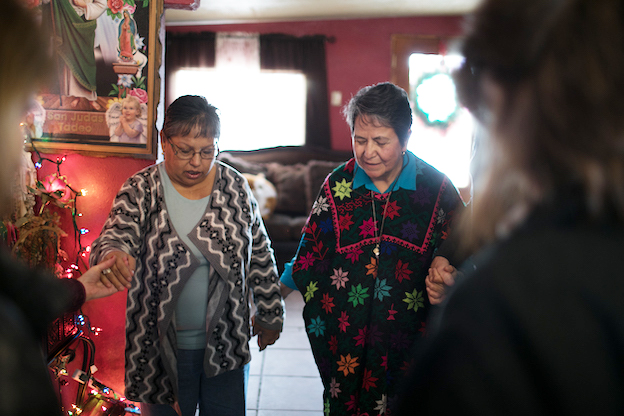Staying at home this past Easter was certainly odd and painful for many, but it was ultimately made easier by Catholics’ belief in the idea of the “domestic Church,” namely that faith starts in our home.
In apostolic times, when there were no public churches, Christian communities gathered in homes and we’ve been able to recapture that sense of our faith being grounded in our homes once again. Pope Francis said in his apostolic exhortation, Amoris Laetitia:
The Church is a family of families, constantly enriched by the lives of all domestic churches.”
Just before the start of the Easter Triduum, Catholic Extension Society reached out to hundreds of lay, religious, and ordained leaders across the country, asking them to submit photos of how they spent these holy days.
What all of this is perhaps signaling is a renewed gravitational pull in the Church toward the domestic church as the privileged place where faith is lived, taught, and transmitted from one generation to the next.
Perhaps, this new emphasis or understanding of the evangelizing power of the domestic Church will be here to stay, long after social distancing restrictions are relaxed.
This resonates with our experience at Catholic Extension Society. Even though we have provided 12,500 grants to build and repair church facilities in our history and work with 87 dioceses today, faith leaders often bring us to the “domestic churches” in their diocese to see the places where the faith is alive among the people we support in the poorest regions of the country.
As a result, we often find ourselves visiting humble households, where we witness vibrant spiritual movements that are organized in people’s living rooms; robust prayer groups among many households routinely convened; or immigrant communities celebrating devotions among their neighbors in preparation for feast days.

We know that that these homes are where the Church has a strong foundation in our poor faith communities, and they bring that lively spirit of togetherness to their parishes.
So often, the teachers of the faith are mothers and grandmothers, and thankfully a respectable number of fathers as well. One endearing example can be found in this two-minute PBS video narrated by the retired bishop of Las Cruces, Ricardo Ramirez:
He recalls that as he was being ordained a bishop, his grandmother, “Abuelita Panchita,” kept teaching him the faith. This strong woman raised many children and was known to catch and kill rattle snakes with her bare hands. She showed that same legendary strength in the face of death. At 90, Ramirez remembers Panchita singing joyfully on her deathbed, telling him “it is a privilege to be able to die.” This kind of faith, this depth of credal conviction, is uniquely instilled in us and witnessed to us in the domestic church.
In the weeks and months ahead, as we roll back social distancing measures across the country, it will be important for us to not lose sight of the unique power and privileged place of the domestic church in the ongoing work of evangelization.
While we all look forward to the reopening of our houses of worship, we hope that the recent surge in activity among our domestic churches will be ongoing, and that there continues to be an enriching dialogue and complementary relationship between our domestic churches and the other official ecclesial bodies of the Church.
Faith communities need your help to continue their life-saving outreach. They cannot do it alone. Express solidarity with impoverished faith communities affected by COVID-19 by giving to our coronavirus response virtual collection basket, praying with and for us and inspiring others by sharing this story.


